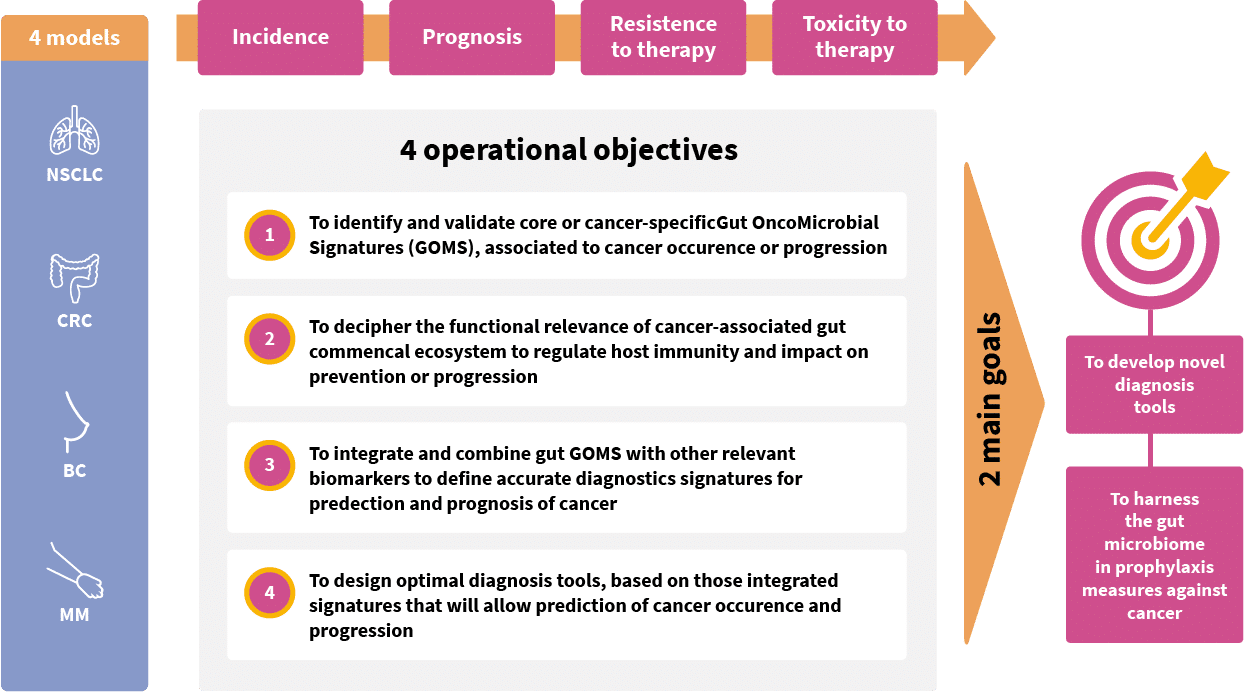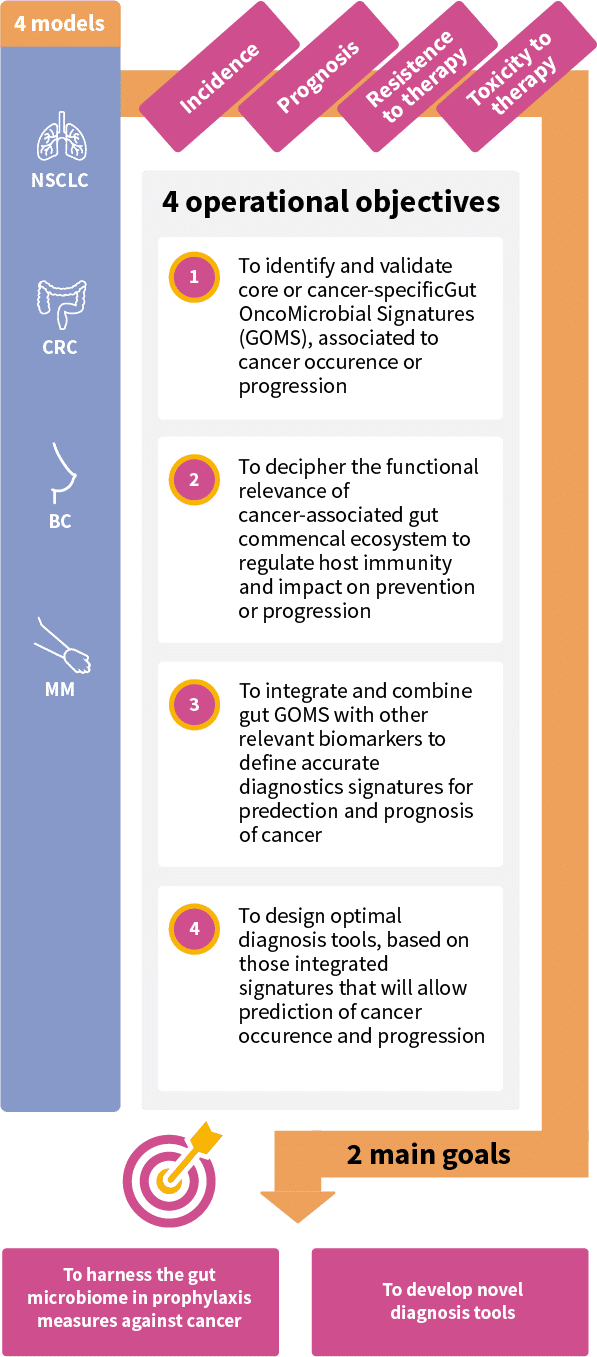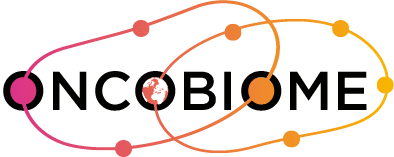Project presentation
One possible factor contributing to oncogenesis and tumor progression that has been neglected is the microbiota.
Indeed, the mammalian phenotype is largely driven by the combination of host and microbial genes. Beyond its role in regulating many fundamental functions of health, the intestinal « metagenome » appears to be dramatically implicated in cancer initiation, progression as well as responses to therapies1,2 , even for cancers developing in sterile tissues outside of the gastrointestinal tract.
Studies on the gut microbiome have so far been organized on a small and local scale, and there is an urgent need to:
- Fully identify and functionally characterize cancer-relevant microbial species by means of robust and standardized methods to validate cancer-associated gut microbiome fingerprints
- Assess their clinical relevance for patient prognosis
- Develop diagnostic tools that could become part of the oncological arsenal for the prevention, prediction and personalization of cancer therapy.
Project structure
ONCOBIOME will be organized around 6 major activities
and 9 Work Packages (WP) which are fully interconnected.
KI : Karolinska Institute – IGR : Gustave Roussy – UNITIN : University of Trento – IIGM : Italian Institute for Genomic Medicine – MU : Masaryk University – INSERM : National Institute for Health and Medical Research – EVI : EVERIMMUNE – HDX : HalioDX
Objectives


NSCLC : Non Small Cell Lung Cancer – CRC : ColoRectal Cancer – BC : Breast Cancer – MM : Melanoma
Expected impacts
Clinical
- Personalised medicine approaches for the prediction and prevention of cancer
- Validated novel clinical tools helpful for end-users (patients and clinicians)
- Facilitated access for patients to innovative therapy and reduced severe side-effects (notably from immunotherapy treatments)
Scientific
- Unprecedented and unique high-quality Cancer Microbiota Atlas
- Knowledge acquisition in healthy versus pathological microbiome conditions
- Integration of data from existing international -omics studies
Economical
- Reduced treatment costs for the national health insurance
